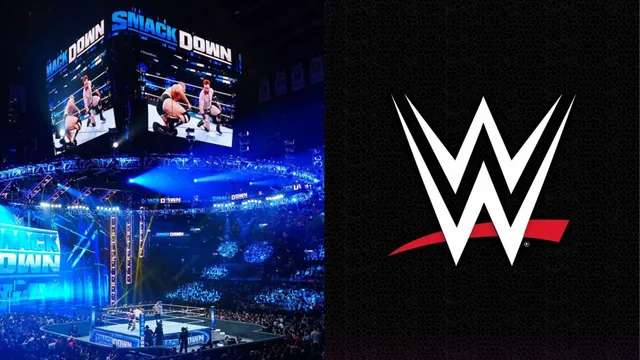WWE is known for its fast-paced and unpredictable world, and recent reports about altered match plans after SmackDown in Orlando have left fans buzzing. While WWE’s storytelling thrives on unpredictability, last-minute changes can sometimes raise questions about the creative direction. This article dives deep into the reported match changes, the potential reasons behind them, and how such decisions impact the broader WWE landscape.
WWE Reportedly Changed Matches After SmackDown in Orlando
The wrestling world thrives on change, but even the most devoted fans were caught off guard when reports surfaced about WWE making alterations to planned matches after SmackDown in Orlando. The wrestling promotion has a history of making sudden creative adjustments, often in response to unforeseen circumstances, talent availability, or storyline reshuffles. While changes aren’t uncommon in the industry, the timing and nature of these reported changes suggest an intricate balancing act behind the scenes.
Why Are Matches Changed After Live Shows Like SmackDown?
When it comes to WWE, last-minute changes aren’t unusual. In fact, they’ve become part of the company’s DNA. Reasons for such alterations may include:
- Injury Concerns: Protecting superstars who may be nursing minor injuries.
- Creative Adjustments: Tweaking storylines to fit longer-term narratives.
- Fan Reactions: Gauging audience responses during live shows.
- Network or Sponsor Influences: Sometimes changes are necessary to align with broadcasting guidelines or sponsor preferences.
In Orlando, these changes reportedly came down after SmackDown’s broadcast concluded, indicating that WWE officials may have been testing new ideas or reacting to immediate backstage developments.
What Matches Were Reportedly Changed in Orlando?
Though exact details of the changes remain under wraps, several credible sources have hinted at alterations involving mid-card storylines and tag team matchups. It’s speculated that some advertised matches were replaced with impromptu bouts, leaving fans at the venue pleasantly surprised. However, this has also raised concerns about the clarity of ongoing storylines, particularly with major events like the Royal Rumble and WrestleMania looming on the horizon.
Fan Reactions to Changes Post-SmackDown in Orlando
The WWE Universe has always been vocal about their opinions, and this instance was no different. Fans at the Amway Center in Orlando took to social media to share mixed reactions. Some praised the unpredictability and spontaneity, while others expressed frustration over the lack of consistency in advertised match cards.
One fan tweeted: “I was expecting to see my favorite superstar in action, but the last-minute switch turned out to be a pleasant surprise!”
Others, however, voiced their disappointment: “We came for the announced matches, but WWE switched things up after SmackDown. It’s frustrating for loyal fans who paid for tickets.”
How Do Last-Minute Changes Affect WWE’s Storylines?
When WWE changes matches after a live show, it can create ripples across ongoing narratives. On the one hand, it allows the creative team to refine long-term plans, ensuring that storylines remain fresh and engaging. On the other hand, frequent changes can confuse fans and disrupt the momentum of certain angles.
For instance, if a high-profile feud is sidelined for an unplanned bout, it risks losing steam, potentially impacting pay-per-view buy rates or TV ratings. WWE must walk a fine line between adaptability and consistency to keep fans invested.
Creative Reasons Behind WWE’s Decisions in Orlando
While some may view these changes as chaotic, they might actually be part of a larger strategy. WWE thrives on its ability to keep fans guessing, and sudden match alterations are a way to maintain that element of surprise. Additionally, such changes could serve as a testing ground for new talent pairings or experimental storylines that might become permanent fixtures down the road.
In Orlando, it’s possible that the post-SmackDown match changes were implemented to test crowd reactions to new angles, giving WWE valuable insights ahead of upcoming pay-per-views.
The Role of Triple H and the Creative Team
With Triple H at the helm of WWE’s creative department, the company has undergone a notable transformation in recent years. The Game’s leadership has been praised for emphasizing storytelling and long-term planning. However, these reported changes in Orlando may indicate that even under Triple H’s watchful eye, WWE isn’t afraid to adapt on the fly when necessary.
Whether it’s introducing new talent, recalibrating a feud, or simply reacting to unforeseen circumstances, the creative team plays a critical role in shaping the product fans see each week.
Historical Precedents: Has WWE Changed Matches Before?
This isn’t the first time WWE has changed matches on short notice. Over the years, there have been several notable instances where the company made last-minute adjustments, often resulting in memorable moments:
- WrestleMania 30: Daniel Bryan’s unexpected rise to the main event.
- Money in the Bank 2011: The decision to push CM Punk as a megastar.
- Royal Rumble 1992: Changes to the match format that crowned Ric Flair as champion.
These examples illustrate that while sudden changes can be controversial, they often lead to some of WWE’s most iconic moments.
Impact of Orlando’s Match Changes on Future WWE Events
If the reports are accurate, these changes in Orlando could have a ripple effect on future WWE programming. Potential implications include:
- Tweaked Rivalries: Altering the trajectory of ongoing feuds.
- Enhanced Storytelling: Using unpredictability to build anticipation for major events.
- Fan Expectations: Reinforcing the idea that “anything can happen” in WWE.
As the road to WrestleMania begins to take shape, these changes might signal a shift in creative priorities, setting the stage for surprises in the months ahead.
What Does This Mean for WWE Superstars?
Superstars are often at the mercy of creative decisions, and last-minute match changes can have a significant impact on their careers. For mid-card talents, it could mean an unexpected opportunity to shine. For top stars, it might lead to frustration if their storylines are disrupted. Either way, adaptability is key for anyone hoping to thrive in WWE’s ever-changing environment.
Conclusion
WWE’s reported match changes after SmackDown in Orlando underscore the unpredictable nature of professional wrestling. While these decisions can spark debate among fans, they also reflect the company’s commitment to keeping its product dynamic and engaging. Whether these changes lead to unforgettable moments or temporary confusion, one thing is certain: WWE continues to thrive on its ability to surprise and entertain.
FAQs
What matches were changed after SmackDown in Orlando?
Specific details haven’t been confirmed, but reports suggest changes to mid-card and tag team matchups.
Why does WWE change matches after live shows?
Reasons include injury concerns, creative adjustments, and gauging fan reactions to new ideas.
How do fans feel about last-minute match changes?
Reactions are mixed. Some enjoy the unpredictability, while others feel frustrated by the lack of consistency.
Who decides on match changes in WWE?
The creative team, led by Triple H, plays a key role in making these decisions.
Are last-minute match changes common in WWE?
Yes, WWE has a history of making sudden adjustments, often leading to iconic moments.
Will Orlando’s match changes affect future WWE storylines?
It’s possible, as such changes can alter rivalries and shape the direction of upcoming events.


